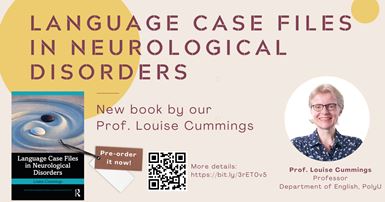
New book related to research in speech-language pathology
11 Aug, 2021
Publication
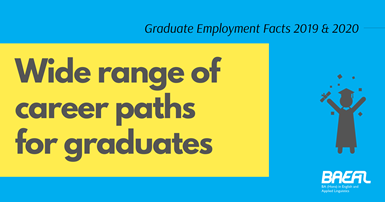
BA Graduate Employment Facts 2019 & 2020
16 Jul, 2021
Programme
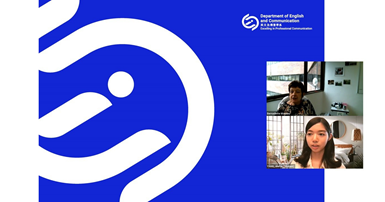
Virtual Prize Presentation of the ENGL New Logo Design Competition
14 Jul, 2021
Others
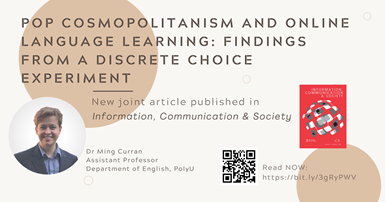
New joint article on the pop cosmopolitanism and online language learning
25 Jun, 2021
Publication

Celebrating PolyU's 85th anniversary
16 Jun, 2021
Others
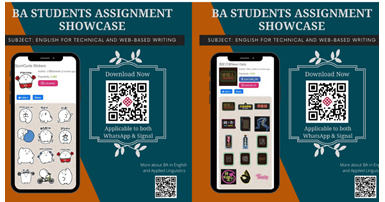
BA Students Assignment Showcase
3 Jun, 2021
Others
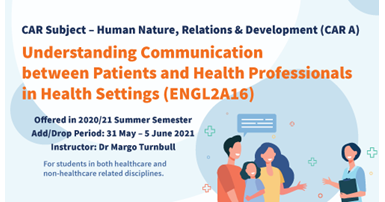
Cluster Area Requirements (CAR) subject "Understanding Communication between Patients and Health Professional in Health Settings''
1 Jun, 2021
Programme
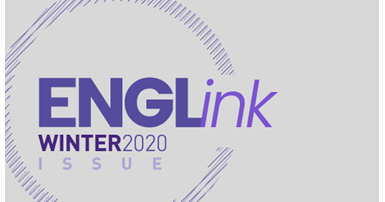
Latest issue of newsletter published: ENGLink Winter 2020
27 May, 2021
ENGLink
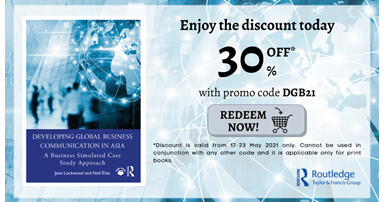
Enjoy 30% off till 23 May for the new book by our Dr Jane Lockwood!
18 May, 2021
Publication

Teacher research brings positive impact
13 May, 2021
Publication




